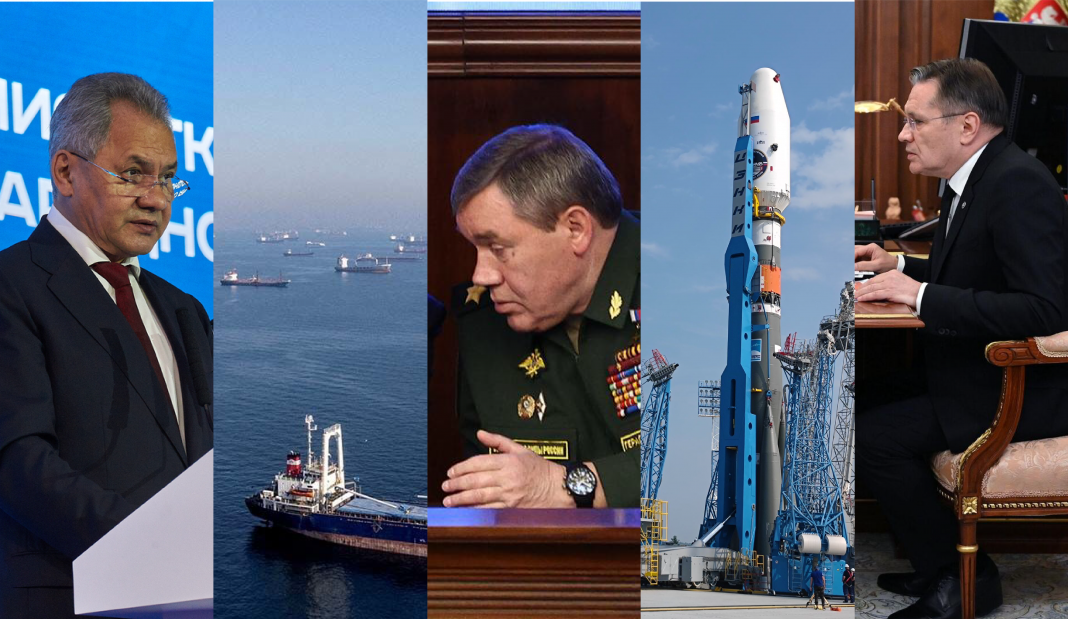This report describes the key events that significantly impacted Russia’s political, economic and social processes.
Based on the results of the past week, the following trends can be summarised:
- The process of creating a single military-political space along the Russia-China axis continues; including smaller players (Belarus and Korea) in this union is just political scenery. The question is to what extent big players like Iran or India can join this alliance. Rather, their accession today looks problematic due to several contradictions.
- Preparations for the combined voting day (September 11) are intensifying in Russia. Despite the holiday season, an active struggle between candidates flares up in many regions of the country, which often provokes a reaction in the Kremlin. Soon, we should expect numerous visits by Vladimir Putin to the most problematic regions to put out the fire on the eve of the elections. It is also worth monitoring the situation in the temporarily occupied territories of Ukraine, where Russia plans to hold elections between September 8 and 10.
- Russia is actively preparing to reformat not only the “grain deal”. Still, it is also trying to reformat current relations in the global grain market, creating an alternative for Third World countries as a counterbalance to a single centre for coordinating price policy (the Chicago Grain Exchange). Suppose the idea of Russia, Turks and Qatar is successful. In that case, the US will lose its monopoly on the formation of grain prices and control over grain flows worldwide. Most likely, the new initiative will be positively perceived by China and India, not to mention several countries dependent on grain supplies.
This digest examines the following issues that were most relevant for Russia during 14–20 of August:
1. Putin’s meeting with the head of the state corporation “Rosatom” Alexei Likhachev;
2. Moscow Conference on International Security;
3. Putin’s visit to the headquarters of the so-called “SMO” in Rostov-on-Don;
4. New attacks on Russian territories;
5. New format of the “grain deal”;
6. Failure of the Russian lunar program.
This Content Is Only For Subscribers
- Putin’s meeting with the head of the state corporation “Rosatom” Alexei Likhachev
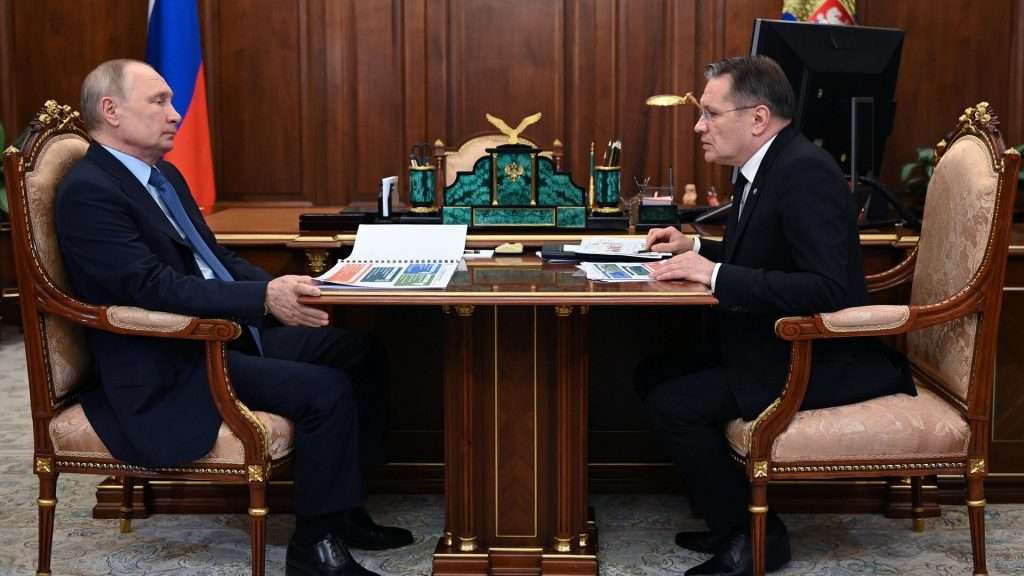
On Monday, August 14, Vladimir Putin met with Director General of the State Atomic Energy Corporation Rosatom Alexei Likhachev. The official report notes that the main topic for discussion was the results of the first half of the year in the field of nuclear energy, as well as its further functioning under Western sanctions. At the same time, it can be assumed that a broader range of issues was discussed.
Key theses:
- Likhachev: “It is with great pleasure that I report to you that for the second year, our own investments exceed one trillion rubles, and this will be the case this year as well – this is a multiple, more than eightfold increase over the past six years.”
- Likhachev: “Over the past six years, the number of the state corporation has grown by more than 100,000 people, of which 60,000 are high-tech jobs. Also, 60,000 people work for us abroad, of which 50 to 50 are employees of Rosatom, citizens of Russia and citizens of our partners, our friendly states.”
- Likhachev: “I would like to thank you for your support in acquiring the Budyonovskoye field in Kazakhstan. We have confidently reached second place in terms of reserves and are among the top three in all stages in the nuclear fuel cycle, and we maintain this leadership.”
- Likhachev: “Of course, the potential for growth in the energy sector in general, and especially in the nuclear industry, is in Asia, in the Middle East, and they just want our technologies and our supplies.”
- Likhachev: “We continue to lead in the export of nuclear power plants. An unusual figure – 22 projects are now being implemented. Belarusian station in pilot operation. In the fall, we finally handed over the second block. It is very interesting to note that following the results of the work of the first block last year, Belarus entered the top twenty nuclear powers – more than 14 per cent of nuclear generation.”
- Likhachev: “I would like to pay attention to Bangladesh. We also deliver fuel to the station this autumn, and soon there will be one more nuclear station on the planet.”
- Likhachev: “We continue to participate in the ITER project actively; this is an international project in France, in Cadarache. The project management demonstrates the high demand for our technologies, in terms of supplies and the work of specialists.”
Outcomes and outlook:
The meeting between Putin and Alexei Likhachev aimed to show the Russian industry’s success story in the face of sanctions pressure. It was important for Putin to show that, despite the sanctions, Rosatom continues to work globally, including in France. Russia also claims to be the largest exporter of peaceful nuclear programs.
Interestingly, the list of projects being implemented outside of Russia included neither the construction of NPPs in Türkiye and Hungary nor preliminary agreements with the President of Zimbabwe. From this, we can suppose that not all announced projects are being implemented within the required time frame, and some are likely stalling. In fact, Russia repeats the sad experience of the late USSR, which tried to show its influence in the international arena by organising symbolic joint flights into space for citizens of the Soviet Union and citizens of friendly countries. Russia today is trying to show the degree of friendliness of countries through common nuclear programs and the construction of nuclear power plants.
It is also important to note that on the eve of the meeting with the president, Likhachev and Shoigu visited the nuclear test site at Novaya Zemlya. Ascolta’s sources once again confirm that during the meeting in the Kremlin, further prospects for new tests to be used to put pressure on the West were also discussed.
- Moscow Conference on International Security
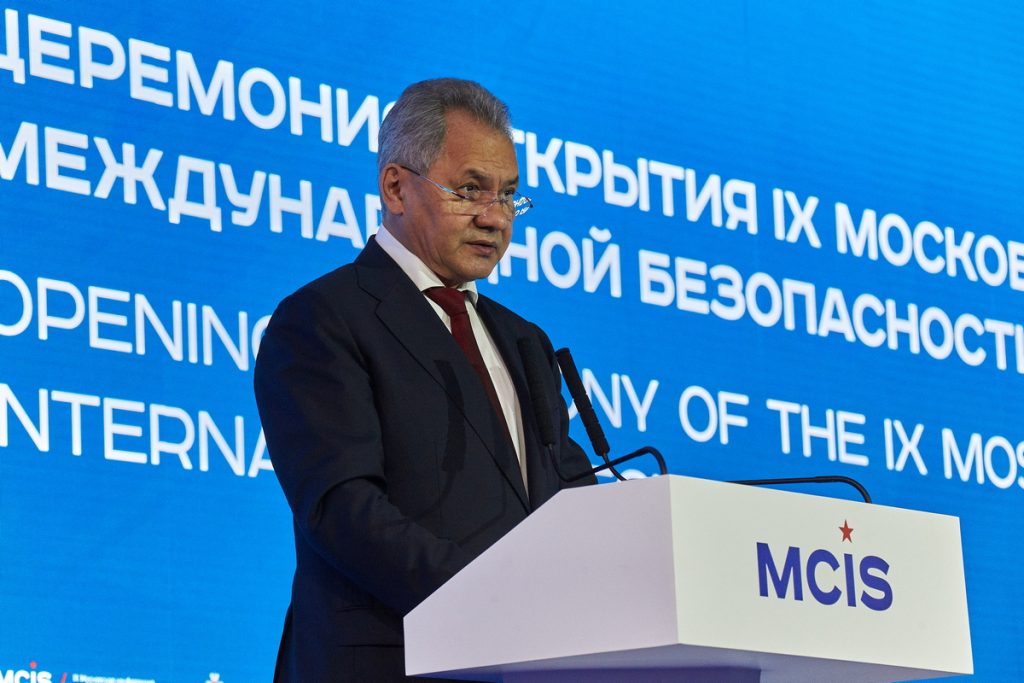
On Tuesday, August 15, the XI Moscow Conference on International Security was held in Moscow. The annual event has been held since 2012. It is the official platform of the Ministry of Defense of the Russian Federation for summing up the year’s results and voicing the main plans for the near future. Also, within the framework of the conference, several panel discussions are held for experts and the military from the countries participating. This year, the main speakers at the conference were Russian Defense Minister Sergei Shoigu, Belarusian Defense Minister Viktor Khrenin, Chinese Defense Minister Li Shangfu, and Director of the Russian Foreign Intelligence Service Sergei Naryshkin. Also, Vladimir Putin, Minister of Defense of the DPRK Kang Sun-nam and a number of other speakers made a video message to the conference participants.
Key theses:
- Putin: “We see how consistently the formation of a multipolar world is proceeding. Most states are ready to defend their sovereignty and national interests, traditions, culture and way of life. New economic and political centres are being strengthened.”
- Putin: “The United States seeks, among other things, to reformat the system of interstate interaction that has developed in the Asia-Pacific region for itself. The promotion of the so-called Indo-Pacific strategies, in fact, is aimed at creating military-political associations controlled by Washington.”
- Putin: “The countries of the Sahara-Sahel region, such as the Central African Republic and Mali, came under direct attack from numerous terrorist groups after the US and its allies unleashed aggression against Libya, which led to the collapse of the Libyan state.”
- Putin: “I repeat, today it is obvious that it is possible to reduce confrontation at the global and regional level, neutralise challenges and risks, strengthen trust between states and open up broad opportunities for their development only by joining the efforts of the world community.”
- Putin: “We have been and remain firm supporters of a multipolar world order based on the priority of the norms and principles of international law, the sovereignty and equality of states, constructive cooperation and trust.”
- Shoigu: “The [so-called] ‘special military operation’ put an end to the dominance of the collective West in the military sphere. Its ability to impose its interests in various world regions has been significantly reduced. The ongoing changes have increased the role of the countries of Asia, Africa and Latin America in the world system, including in the use of natural resources for the sovereign development of states.”
- Shoigu: “Today, Russia is confronted not by the armed forces of Ukraine but by the entire collective West, which individual states of the Asia-Pacific region have recently joined.”
- Shoigu: “Preliminary results of hostilities show that Ukraine’s military resource is almost exhausted. Under the slogan of supporting Kyiv, the United States is clearing the military arsenals of partners in different regions of the world, promising preferential supplies of Western-made equipment in return. In fact, there is a clearing of the market for the products of the American military-industrial complex.
- Shoigu: “We have true-to-life control data on destroying German tanks, American armoured vehicles, British missiles and other weapons systems. We are ready to share assessments of the weaknesses of Western technology with our partners. You can get acquainted with individual samples of captured weapons at a thematic exhibition deployed in the Patriot Park.”
- Shoigu: “An alarming situation is developing around the Zaporizhzhia nuclear power plant. Kyiv exposes it to regular shelling from heavy weapons. The actions of the Armed Forces of Ukraine can provoke a nuclear catastrophe.”
- Shoigu: “The Kyiv regime has shown particular cynicism in implementing the Black Sea grain initiative. Using it as a cover against missile strikes from Russia, significant stockpiles of weapons and ammunition were created in Odesa and other Black Sea ports, which are systematically supplied to the front. Moreover, the production of UAVs and marine controlled vehicles was deployed near the granaries, which strikes at infrastructure facilities in the Crimea.”
- Shoigu: “I wanted to draw attention to the fact that we also have cluster munitions in service. Until now, for humanitarian reasons, we have refrained from using them. However, this decision may be reconsidered.”
- Shoigu: “The West is escalating the situation around Taiwan. There are several analogies in the methods of work that were previously used to undermine the situation around Ukraine. First, this is due to the supply of weapons, the growth of nationalist sentiments in the media, and the formation of a pro-Western anti-national ruling elite. The cynicism of the situation lies in the fact that at the same time, there are calls from Washington for dialogue with Beijing at various levels.”
- Li Shangfu: “Amid tremendous change, President Xi Jinping launched a global security initiative, calling for upholding the concept of common, comprehensive, joint and sustainable security, following the principles of dialogue, partnership and mutual benefit, and abandoning zero-sum antagonistic and bloc game thinking.”
- Shangfu: “Security and development are fundamental rights inherent in every country. They should not be the exclusive privileges of individual states. Such actions as restraining and suppressing other countries not only do not comply with the laws of economic development but also drain the people’s confidence.”
- Shangfu: “The Taiwan issue is purely China’s internal affair. There is no interference from any external forces. The reunification of China is an unstoppable historical trend, and the attempt to use the Taiwan issue to contain China is doomed to failure.”
- Shangfu: “China’s military is a solid force in maintaining world peace. We,” he said, “are ready to deepen all-round practical cooperation with the armed forces of the countries of the world and jointly implement the Global Security Initiative.”
- Khrenin: “It is our deep conviction that the liberal idea of globalisation has not solved the problem of the inequality of states and peoples. Moreover, the so-called countries of the “golden billion” tried to use it to ensure their hegemony in the model of a unipolar world, which would allow them to control the resources of the entire planet. In fact, we can talk about establishing a new, neo-colonial regime on the planet.”
- Khrenin: “In our opinion, the latest expansion of the North Atlantic Alliance is also a kind of colonisation of new territories to use the population living there in a possible war with the East. Moreover, the word “East” here must be understood as all states that are ready to resist Western domination.”
- Khrenin: “The doctrinal documents [of Western countries] continue to consolidate claims for global and regional dominance, which is planned to be achieved through the use of military force. It is becoming regarded as the main means of upholding national interests. The threshold for making decisions on its application is being reduced.”
- Khrenin: “The countries neighbouring the Republic of Belarus are also preparing armed militants on their territory from among the criminals who escaped from Belarus. At the same time, they openly say that they will use them for military attacks on the Belarusian state.”
- Khrenin: “I won’t repeat how dangerous the disruption of unity in the CIS, CSTO, and SCO formats is in the long run. The President of the Republic of Belarus has repeatedly said that momentary benefits can subsequently cause a catastrophe.”
- Naryshkin: “There is such a common expression that in the world, one cannot be absolutely sure of anything. The level of unpredictability and nihilism at the present stage is really growing, especially considering how aggressively the West is destroying the fundamental norms of human morality, international law, and religious truths. However, I am absolutely sure that the current crisis period will be replaced by the triumph of a new, more just and democratic world order.”
- Naryshkin: “Perhaps Washington’s main problem is its rapidly growing isolation from reality. The American elite has long lived in the one rainbow world known to it, where the United States still reigns supreme on the planet, is the unquestioned military, economic and spiritual authority and has the exclusive right to oversee and punish. And the reality is that they have long turned into an exaggerated hegemony, which is stubbornly trying to force others to do what they themselves do not believe in and do not correspond to. Hypocrisy and cynicism are incompatible with leadership, and even more so with messianism.”
- Naryshkin: “The so-called International Criminal Court has long turned into a cudgel for punishing leaders objectionable to the collective West, mainly African ones. Today, this fictitious judicial body, in which – let me remind you – more than a third of the UN member states and half of the world’s population do not participate, is trying to take a swing at our country. The ICC is so distraught that it calls rescuing children from a conflict zone a “crime”. At the same time, he point-blank does not notice the child victims of the Ukrainian bombing of Donbas.”
- Naryshkin: “The US does not recognise the jurisdiction of the ICC because quite rightly; they believe that this would limit their sovereignty. Nevertheless, the Biden administration welcomed the accusations against Moscow by the Hague platform. But if the White House is so worried about the fate of street children, then why shouldn’t it turn its eyes towards the US-Mexico border?! As a result of the migration crisis, 85,000 children are listed as missing – listen to this figure!”
- Naryshkin: “The West positions itself as a champion of religious freedom, or permissiveness. Almost everything is allowed in Europe and the USA: cutting down crosses, burning the Koran, sacrilege and blasphemy. It is impossible to defend your faith and take it seriously. The logic of globalists is understandable: in the era of the collapse of old ideologies and the struggle for a new world order, traditional religions are a source of strength and sovereignty for people, countries and peoples, which means they must be eliminated.”
- Naryshkin: “The construction of a multipolar world order is especially noticeable in Eurasia. An important quality of structures such as the SCO, the EAEU, the CSTO and the CIS, which fundamentally distinguish them from Western military-political and economic blocs, is their non-direction against third countries and their focus on establishing a fair world order based on respect for sovereignty and international law.”
- Kang Sun-nam: “Chairman of State Affairs of the DPRK, Supreme Commander of the DPRK Armed Forces Comrade Kim Jong-un has repeatedly met with Defense Minister Comrade Sergei Shoigu, voiced his assessment and principled position on the rapidly changing international security environment and the military-political situation on the Korean Peninsula and emphasised the intention to further develop tactical and strategic interaction and cooperation between the two countries in the field of defence security.”
- Kang Sun-nam: “Until the United States recognises the complete collapse of its hostile policy towards the DPRK and forever irreversibly abandons its line of military confrontation against our republic, the solution of any issue through dialogue or negotiations is in no way possible, and only physical force is the only way to uphold peace and stability on the Korean Peninsula. This is our unshakable position.”
- Kang Sun-nam: “Nuclear war on the Korean Peninsula is no longer a question of whether it will be, but a question of who will start it and when. The nuclear war mania by the United States and the puppets in the Republic of Korea is turning the Korean Peninsula and Northeast Asia into a new hotbed of nuclear war.”
Outcomes and outlook:
The Conference on International Security in 2023 did not become a milestone event. As expected, the conference was attended by representatives of states that form an informal military-political anti-Western bloc – Belarus, China, and North Korea. Their speeches were also predictable – threats towards the West, statements like “we are stronger than ever.”
It can be said with confidence that the process of creating a single military-political space along the Russia-China axis continues; including smaller players (Belarus and Korea) in this union is just political scenery. The question is to what extent significant players like Iran or India can join this alliance. Instead, their accession today looks problematic due to several knots of contradictions; the absence of speeches by their representatives at the Conference is also very significant. That is, the Conference left more questions than answers and did not turn into an event but received rather modest coverage in the media.
- Putin’s visit to the headquarters of the so-called “SMO” in Rostov-on-Don
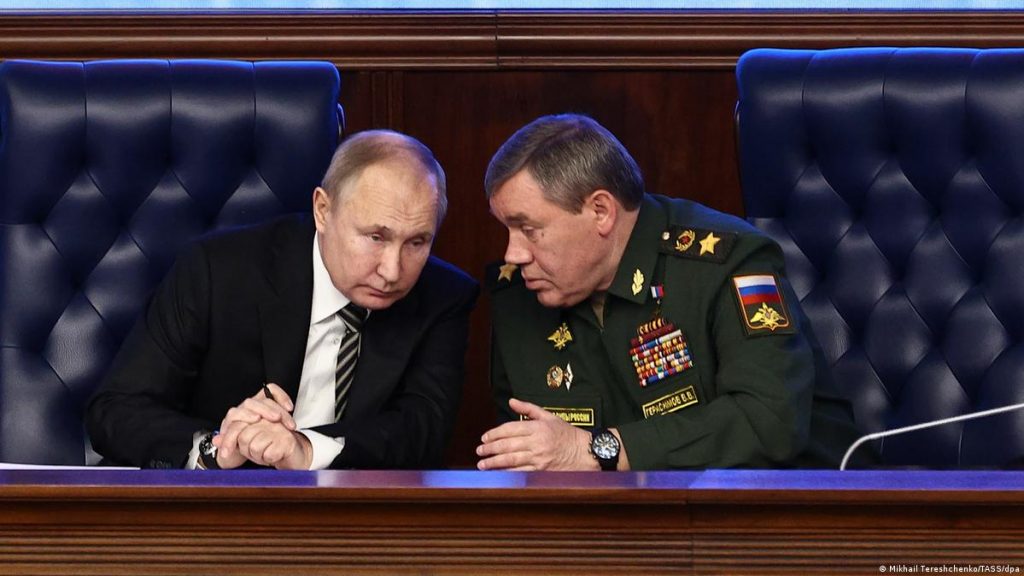
On the night of August 18-19, the website of the President of the Russian Federation posted information about Vladimir Putin’s visit to the headquarters of the so-called “SMO” group located in Rostov-on-Don. In particular, the report indicated that Putin held a meeting with the leadership of Russian troops on the territory of Ukraine. In particular, Valery Gerasimov took part in the meeting. This visit was the first after the “Prigozhin rebellion”, during which the fighters of the Wagner PMC captured the headquarters in Rostov-on-Don.
Outcomes and outlook:
We are dealing with Putin’s PR campaign, which should show that the president does not sit in a bunker, as the opposition press reports, but takes an active part in the so-called “SMO”. In addition, the arrival of Putin personally should allegedly lead to the fact that the critical mood in the army concerning Shoigu and Gerasimov will decline. It is quite possible that Putin discussed organisational and strategic issues with the command of the so-called “Northern Military District” – it is quite possible to expect both the intensification of hostilities in the Ukrainian direction and personnel changes soon
- New attacks on Russian territories
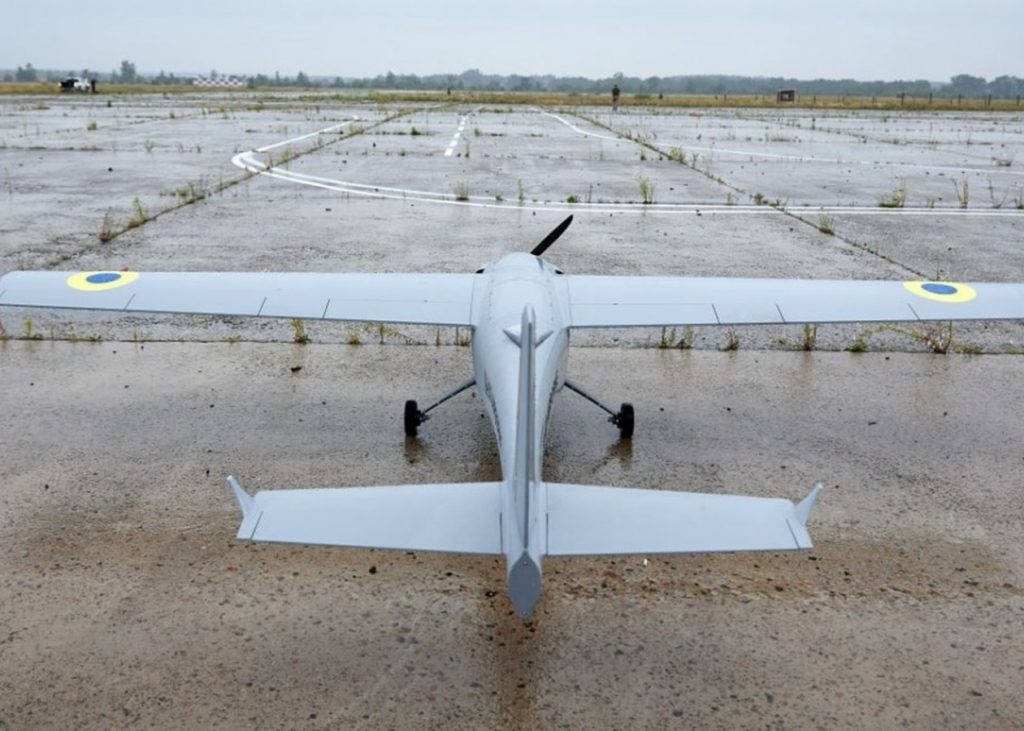
Over the past week, several Russian regions have been attacked by UAVs, causing damage to infrastructure and equipment and sparking heated discussions on social media. Recently, such attacks have been carried out almost weekly. At the same time, there is no reaction from the official authorities of the Russian Federation, which raises questions for many analysts.
Timeline:
- On the morning of August 18, another UAV attack on Moscow occurred. One of the drones hit the Expocentre on Krasnopresnenskaya Embankment near Moscow City. A partial collapse of the outer wall in one of the pavilions was recorded; the collapse area was about 30 square meters.
- On the same day, the Russian Serpukhov (south of the Moscow region) noticed five flying objects moving toward Moscow. At the same time, there were no reports of strikes.
- On Saturday, August 19, the Russian Ministry of Defense announced a UAV attack on a military airfield in Soltsy, in the Novgorod region. The report notes that as a result of the attack, a fire broke out on the territory of the airfield, and one aircraft was damaged. Later, a photo of a Tu-22M3 aircraft engulfed in fire began actively spreading on the network.
- On the morning of August 20, a drone attacked a railway station building in Kursk, Russia. According to the governor, he crashed into the roof of the building, where a fire broke out. Glass fragments slightly injured five people.
- Later, the Russian Ministry of Defense announced that another drone was shot down at night south of Moscow in the Stupinsky district. He allegedly fell in a deserted area under the influence of electronic warfare.
- On the same day, the governor of the Rostov Region, Vyacheslav Golubev, announced a drone attack on a military unit: “Two drones fell on the territory of a military unit in Kamensk, another one a kilometre north of Novoshakhtinsk. There are no casualties or damage due to the fall of the drones.”
Outcomes and outlook:
The bombing of Russian cities and Moscow directly with the help of drones from a military-strategic point of view does not matter – the efficiency, in this case, is close to zero (except for hitting strategically important objects). But the Ukrainian side demonstrates its capabilities and the fact that it will not tolerate a “one-sided game” when hostilities are conducted only on the territory of Ukraine.
Such actions are predominantly intimidating to prevent the Russian Federation’s citizens from feeling safe in war conditions. Over time, this tactic may increase protest moods in Russia. However, military strategists have repeatedly disputed this thesis since the 1960s, primarily in the United States (the secret analytical report of the Jason group, 1966, based on the results of an analysis of the bombing of Vietnam).
On the other hand, it should not be ruled out that such an intensification of shelling of Moscow and other central regions of Russia can be used by the Kremlin to form the necessary public opinion. Ascolta has repeatedly written about the active mobilisation in Russia throughout the year, an indefinite decree signed by Putin last fall. According to data that needs further confirmation, the unpublished plan of the Kremlin is designed to mobilise about 1.2 million people. In this case, the formation of a stable image of a terrorist threat (especially in such liberal regions as Moscow and the Moscow region) will legitimise in the public mind the need for an escalation of the conflict and a massive war.
- New format of the “grain deal”
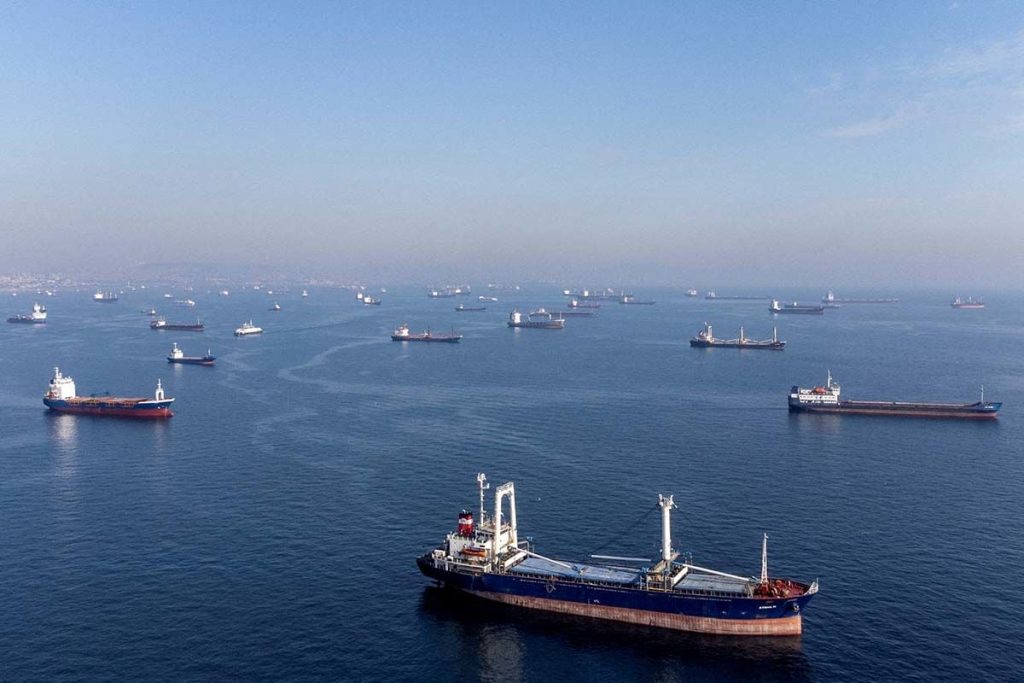
On Friday, August 18, the German publication Bild published information according to which Russia, the Turks and Qatar are preparing a new agreement to replace the grain deal. Such information is allegedly confirmed by the presence of official correspondence between Turkish and Russian diplomats, from which it follows that Moscow warned Ankara about withdrawing from the grain deal. It is also noted that Russia, the Turks and Qatar are currently working on a new tripartite agreement, which should replace the expired one. It is proposed to supply Russian grain to poor countries, mainly in Africa. Türkiye will act as the organiser, and Qatar will sponsor the deliveries.
It also follows from the correspondence that Türkiye Foreign Minister Hakan Fidan asks Russia to resume the previous “grain deal” so that grain is also supplied from Ukraine. Ankara also proposes to act under the auspices of the UN.
Although this information is not based on reliable data, Ascolta sources in Ankara confirmed both the fact of such negotiations and the planned meeting in Budapest, in which President Recep Tayyip Erdogan, head of Tatarstan Rustam Minnikhanov and Emir of Qatar Sheikh Tamim bin Hamad Al Thani will attend. This information was officially confirmed on Sunday, August 20: Al Thani arrived in Budapest and held an official meeting with Hungarian Prime Minister Viktor Orban. Minnikhanov also arrived there at the same time.
Outcomes and outlook:
In fact, we are examining an attempt to reformat the current relations in the global grain market, creating, in contrast to a single centre for coordinating price policy (the Chicago Grain Exchange), an alternative for Third World countries. Suppose the idea of Russia, Turks and Qatar is successful. In that case, the US will lose its monopoly on the formation of grain prices and control over grain flows worldwide.
Most likely, the new initiative will be positively perceived by China and India, not to mention several countries dependent on grain supplies. This threatens political instability in the next decade, as Russia and China will have the leverage to change governments and regimes in many Third and Fourth World countries, where the position and influence of the West are still strong.
- Failure of the Russian lunar program
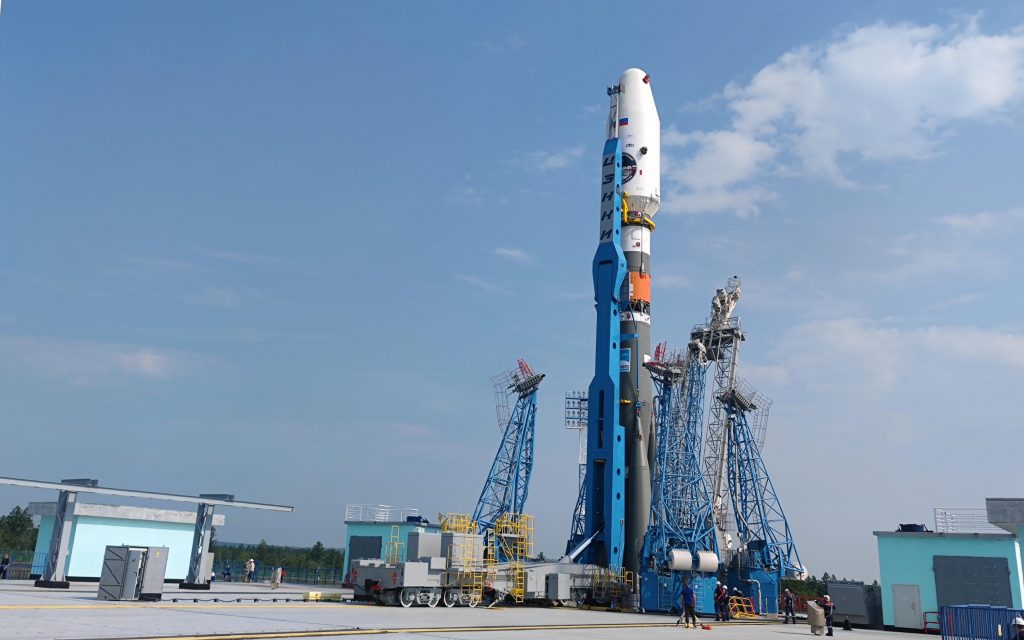
On Saturday, August 19, Roscosmos announced that an emergency had occurred on board the Luna-25, which did not allow the transfer to the pre-landing orbit with the given parameters. The device was launched into space on August 10 and was supposed to get to the south pole of the Moon for a series of studies. Already on Sunday, August 20, Roskosmos made another appeal, in which they noted that, according to preliminary calculations, the Luna-25 station switched to an off-design orbit, collided with the Moon and ceased to exist.
Outcomes and outlook:
Speaking about reputation, Russia suffered a tough defeat since the launch of the Luna-25 station failed. In fairness, it should be noted that several previous American lunar programs ended unsuccessfully (the last one, in December 2022, ended in even greater shame – the spacecraft could not leave the Earth’s orbit), but for Russia, this flight was a matter of prestige: she wanted to prove that under sanctions it can carry out successful space programs without cooperation with the West.
It was an exam for the technological independence of Russia in the field of high technologies, and this exam failed. The most painful thing for Russia may be that it will be ahead of India on this path, which plans to land its space station on the Moon in the coming days. If the Indian project proves successful, it will mean that the space initiative from the US and Russia is moving to Asia.

